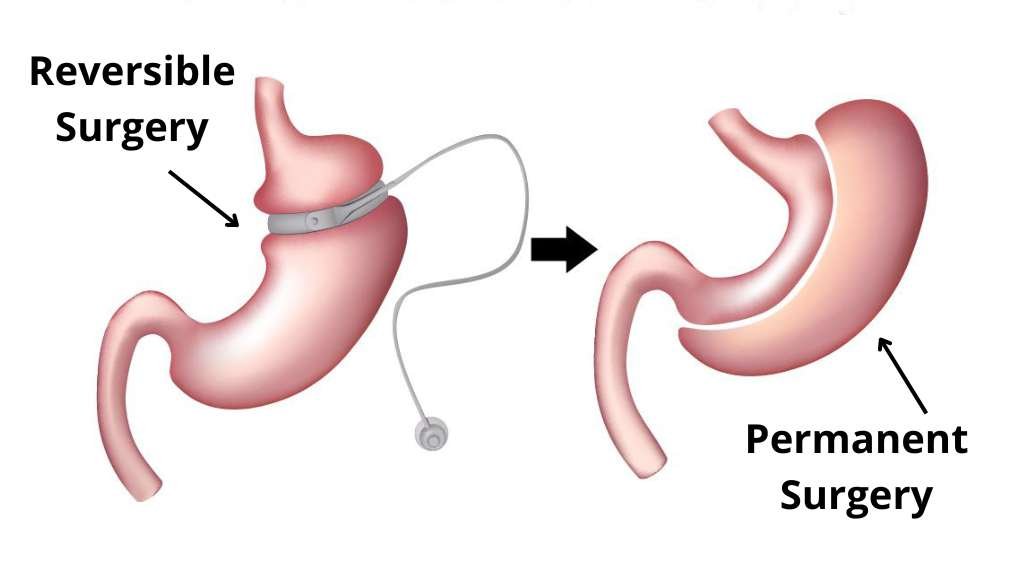Bariatric surgery, commonly known as weight reduction surgery, is a life-changing alternative for people suffering from obesity and associated health problems. However, not everyone is an ideal candidate for these operations. Several issues may prevent people from having bariatric surgery, and it is critical to recognize these concerns before considering such treatments.
Medical Condition
Certain medical problems may provide risks or difficulties during or after bariatric surgery, resulting in exclusion. These conditions might include:
Uncontrolled Diabetes
Poorly managed diabetes can raise the risk of surgical complications and have an impact on post-operative results.
Significant Heart or Lung Disease
Some people may find surgery too risky because they have significant heart failure, uncontrolled hypertension, or severe lung disease.
Active Substance Misuse
Substance misuse, such as alcohol or drug addiction, can have an influence on surgical results and might require treatment and normalization before proceeding with surgery.
Untreated Mental Health Problems
Unmanaged mental health issues such as severe depression, schizophrenia, or disorders of eating might require stabilization and treatment before surgery is considered.
Certain Gastrointestinal Conditions
Inflammatory bowel disease (IBD), severe reflux disease, or untreated ulcers may complicate surgery and require treatment before bariatric treatments.
Inadequate Weight or BMI
Bariatric surgery is often advised for those who have a body mass index (BMI) of 35–40 or higher, depending on their medical conditions. Individuals with a BMI below this level may not be eligible for surgery due to weaker risk-benefit ratios.
A Lack of Commitment to Lifestyle Changes
Successful outcomes from bariatric surgery need a strong commitment to lifestyle adjustments, such as dietary changes, frequent exercise, and ongoing medical check-ups. Individuals who are not willing to make these long-term adjustments may be not eligible for surgery.
Surgical Risks and Considerations
Factors relating to surgical risks and concerns might affect eligibility for bariatric surgery:
Past Abdominal Surgeries
Individuals with a history of severe abdominal surgery may have changed anatomy or scar tissue, which might complicate bariatric treatments.
Age Factors and Overall Health
Getting older and certain health issues might raise surgical risks, and surgeons may take them into account when evaluating suitability for operation.
Pregnancy or Plans for Pregnancy
Due to potential risks to the baby and changes in nutritional demands, bariatric surgery is typically not suggested during pregnancy or for people hoping to get pregnant soon.
Insufficient Insurance Coverage
Some insurance companies may have special requirements or limits for funding bariatric surgery. Individuals who cannot pay the surgery out of pocket may be disqualified due to a lack of insurance coverage or other financial issues.
Insufficient Pre-Operative Preparation
Before having bariatric surgery, patients must go through an extensive assessment and preparation procedure that includes medical tests, dietary counseling, and psychological evaluations. Failure to meet these pre-operative standards may result in disqualification.
Lack of Awareness or Unrealistic Expectations
Individuals considering bariatric surgery must have an extensive understanding of the operation, its risks, its expected outcomes, and necessary changes to their lives after surgery. Unrealistic expectations or a lack of understanding of the procedure might lead to disqualification or unhappiness with the results.
While bariatric surgery may be life-changing for many people struggling with obesity, it’s important to understand the conditions that may prevent someone from undergoing these treatments. Consulting with skilled medical professionals, undertaking extensive assessments, addressing medical and lifestyle factors, and knowing the risks and benefits are all essential factors in evaluating suitability for bariatric surgery. TurkeyObesity is committed to offering complete examinations and personalized support to help people accomplish their weight reduction goals safely and successfully. Contact us for a consultation to discuss your eligibility and potential treatment choices customized to your specific need.
Frequently Asked Questions (FAQs)
- What medical conditions may disqualify someone from bariatric surgery?
Medical disorders that affect eligibility for bariatric surgery include uncontrolled diabetes, severe heart or lung disease, active substance misuse, untreated mental health concerns, and certain gastrointestinal diseases.
- Are there age restrictions for bariatric surgery?
While aging cannot exclude surgery, older age and certain health problems may raise the risks. When deciding whether to do bariatric surgeries, surgeons take these considerations into account.
- Can previous surgeries affect eligibility for bariatric surgery?
Individuals with a history of severe abdominal surgery may have changed anatomy or scar tissue, complicating bariatric treatments and possibly limiting eligibility.
- Does insurance coverage impact eligibility for bariatric surgery?
Some insurance companies have special requirements or limits for funding bariatric surgery. Individuals who cannot pay the surgery out of pocket may be disqualified due to a lack of insurance coverage or other financial constraints.
- Can pregnancy or plans for pregnancy affect eligibility for bariatric surgery?
Due to possible dangers to the baby and changes in nutritional demands, bariatric surgery is typically not suggested during pregnancy or for people hoping to get pregnant soon.
- What should individuals understand before considering bariatric surgery?
Individuals must have a solid understanding of the process, its risks, expected outcomes, and necessary lifestyle modifications following surgery. Unrealistic expectations or a lack of understanding may affect eligibility or satisfaction with the outcomes.
- How can I determine if I’m eligible for bariatric surgery?
Consultation with skilled medical professionals, complete assessments, addressing medical and lifestyle variables, and understanding the risks and benefits are all important aspects in deciding eligibility for bariatric surgery. Contact our clinic for a consultation to discuss your individual needs and potential treatment choices.











